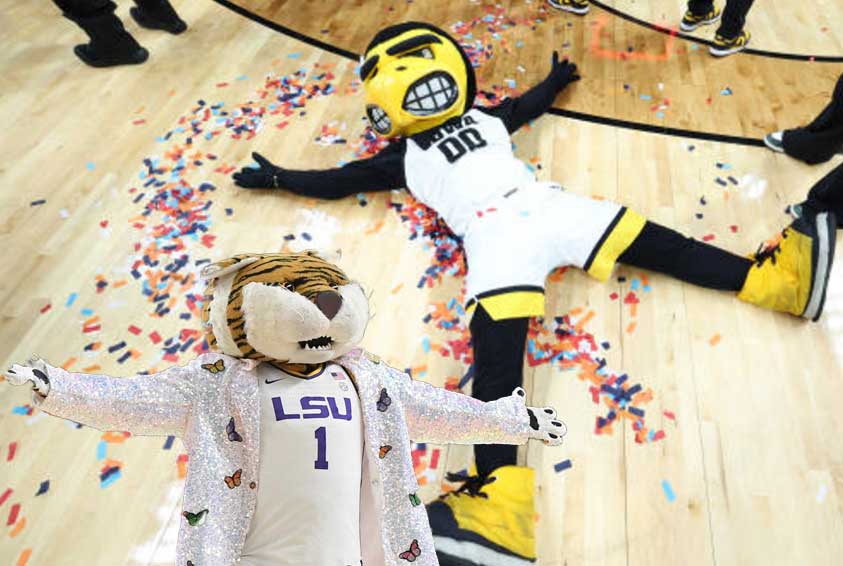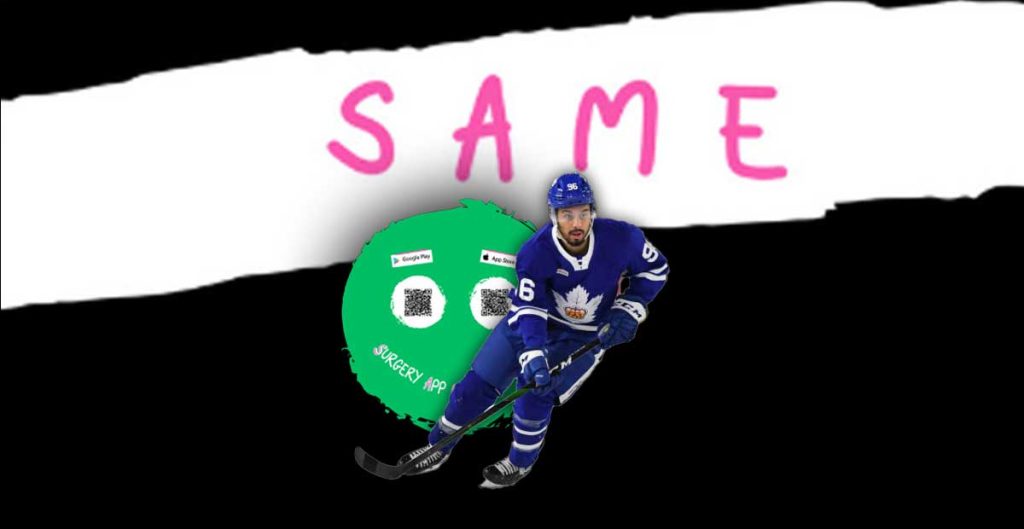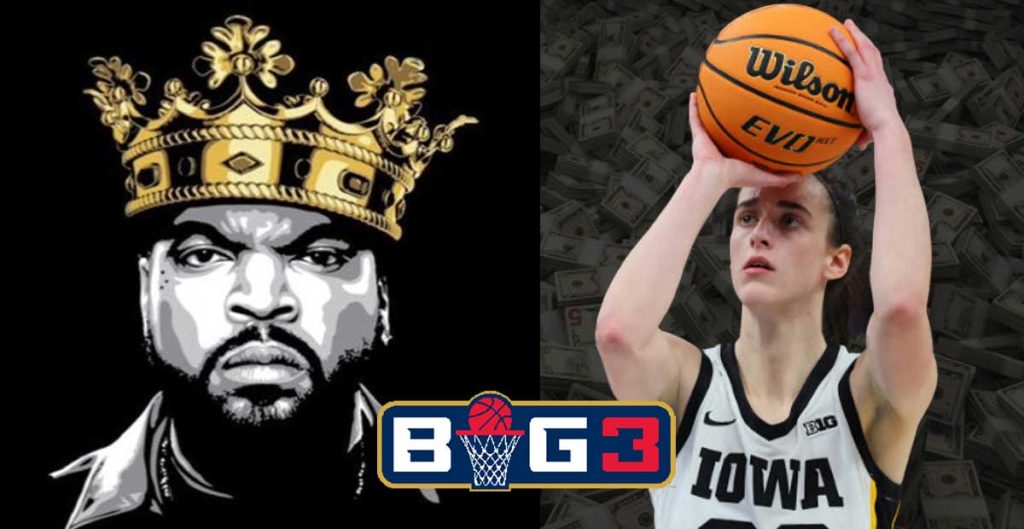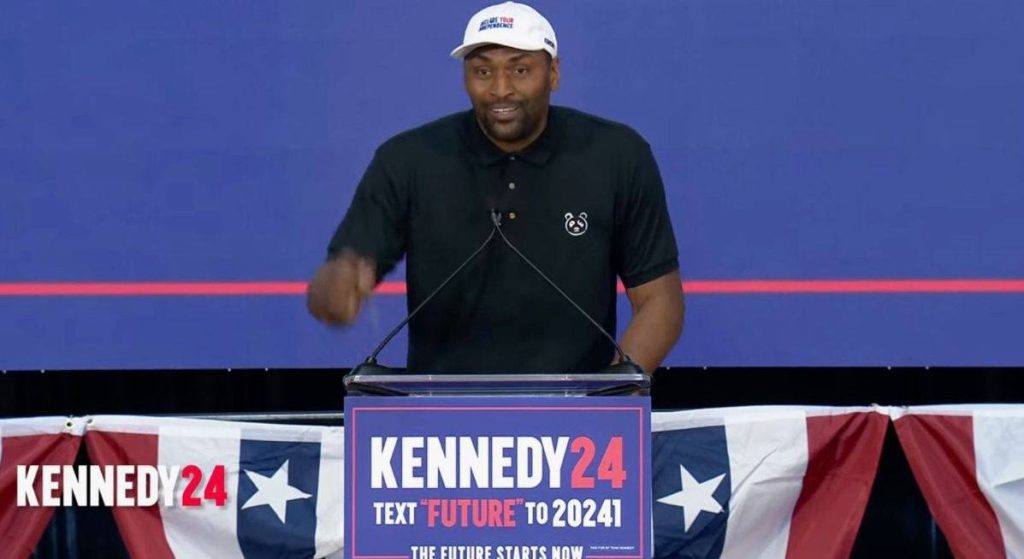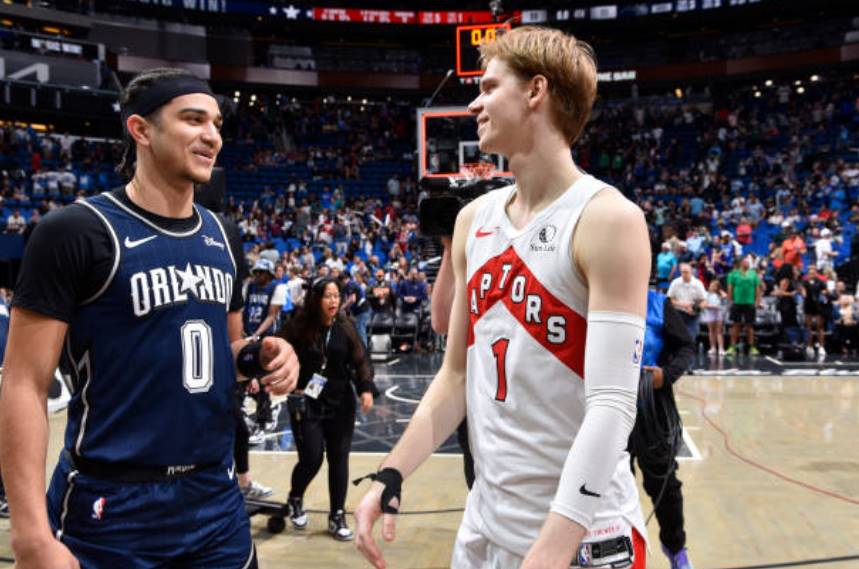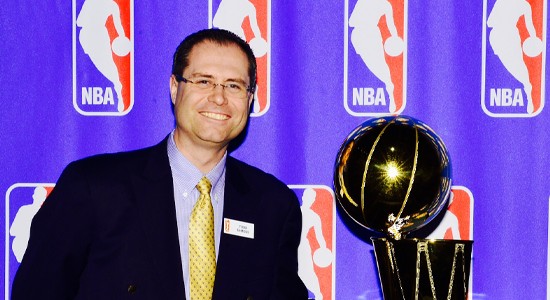
1 on 1 with Zack Fisch | Manager of Media Relations & Broadcasting | Hershey Bears

As I am the Hershey Bears broadcaster, my first priority is to know my team like the back of my hand, but I also want to know as much as I can about the opponent so I can tell the story of what makes that night’s game interesting.
Zack Fisch
Manager of Media Relations & Broadcasting
Hershey Bears
The Latest
Jontay Porter Banned From The NBA For Life
Iowa vs LSU: A Landmark Moment in Women’s College Basketball
Former NHLer Josh Ho-Sang Now A Rapper
Metta World Peace Endorses RFK Jr. for President 2024
1Tell us about your role as Manager of Media Relations & Broadcasting for the Hershey Bears. What does a typical day look like for you?
In Hershey, I’m the “Voice of the Bears” calling play-by-play of all games on the Bears Radio Network and when we are on television.
Play-by-play has always been my passion, so undoubtedly the three hours I’m on air calling the action is the best part about my job.
Obviously, my job duties entail a lot more than just broadcasting.
I also serve as the team’s day-to-day public relations contact, working with media locally and across the globe with interviews, feature stories, and coverage of the club, both on and off the ice.
I enjoy that part of the job as I have great relationships with our local media, and on an international scale, it’s helped me work on some cool projects with places like ESPN. Other PR duties also include press releases, media alerts, game notes, and program articles.
I dabble in many other departments including social media, marketing, and hockey operations where needed as well.
There is never really a typical day, and that’s what makes this job so fun. Every day is unpredictable.
I get to my office at the Giant Center with a plan of what I need to get done daily, but 10 minutes into a project I can get a call from a media member that changes my plans. Or if a trade or roster move happens, you have to drop everything and work on that.
Even when I leave my office at night, during the season, I always have to be on call for anything that may happen. I have a routine I follow on game days that is a lot more typical, but the day-to-day nature of the job will really keep you on your toes.
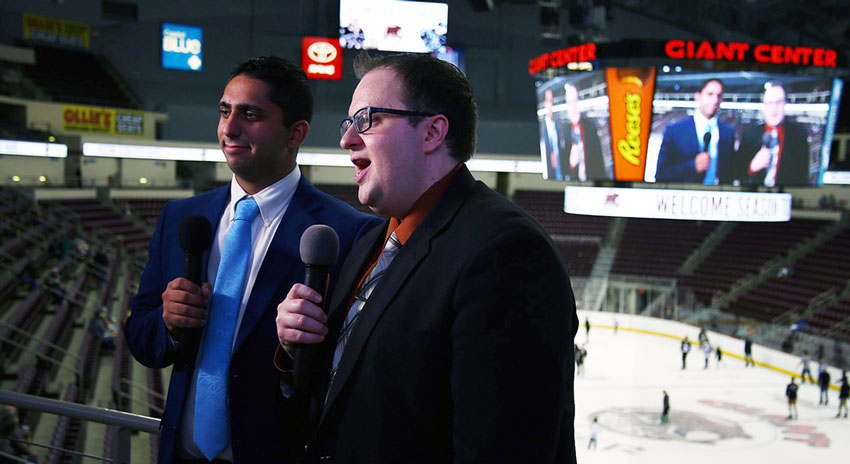
2You’ve been involved in sportscasting for over 10 years now. When did you realize that you were meant to do this as a career?
I’ve always loved hockey and wanted to be involved in the game as a career.
Growing up in Kansas City, we didn’t have the highest level of hockey, so I pretty quickly knew I wasn’t going to have a career as a hockey player.
I’ve always loved play-by-play and the different aspects of hockey broadcasts. I used to mute the TV and call hockey games into an old recorder as a kid.
However, my interest really grew when I started at Olathe Northwest High School in my hometown as I joined their special e-Communications program.
It allowed me to work on a school broadcast show about sports, getting on-camera and behind the scenes experience. I wanted to take that to a college where I could work behind the scenes on a broadcast crew, but where I could also call play-by-play.
Being a hockey guy, the college had to have some sort of hockey team.
I came across St. Cloud State University in Minnesota. They were a huge D-I hockey school that had an excellent Mass Communications program. I visited in 2007 and knew I was going to school there right away.
As a freshman, I was on the TV production crew of men’s hockey home games but also got a chance to call women’s hockey games on the radio. As soon as I did a hockey play-by-play broadcast, I was hooked and knew that’s what I wanted to do most with my career.
My experience in St. Cloud was amazing as I got to call men’s and women’s hockey on radio and TV during my time there, and with Minnesota being the “State of Hockey”, I also picked up jobs calling hockey for the Granite City Lumberjacks, an NA3HL team, and high school hockey for Fox Sports North Prep Zone. All those opportunities solidified that this is what I wanted to pursue as a career.
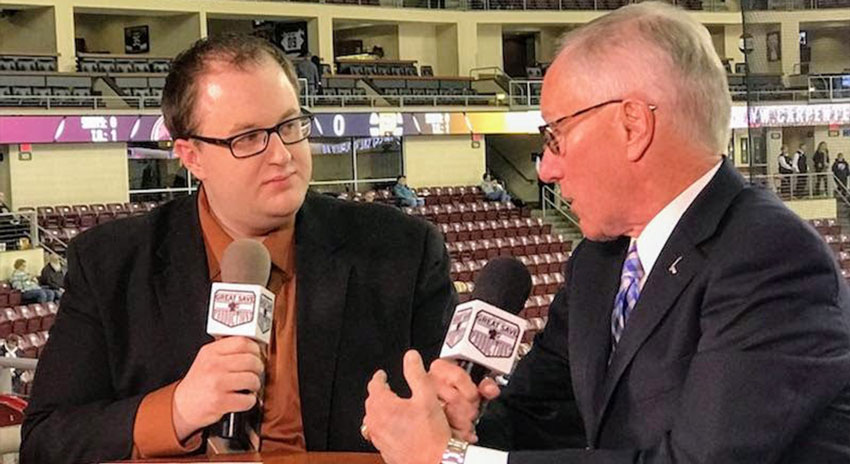
3How much preparation goes into each game when you’re getting ready to call it? What steps do you take to ensure the play-by-play goes as smooth as possible?
When it comes to the broadcast, preparation is key. I put hours into every broadcast, and at the end of the day, 90% of what you pull together probably doesn’t even make it onto the air. However, you have to have all that information right there at your fingertips ready to access no matter what situation comes up in a game.
Like many broadcasters, I make a few spotting boards each game that features each team’s roster and nuggets on all the players dressing that night.
Additionally, I have another legal size paper that sits in front of me that I fill in by hand with that night’s lineups, team leaders, special teams, streaks, head-to-head info, and storylines. As I am the Hershey Bears broadcaster, my first priority is to know my team like the back of my hand, but I also want to know as much as I can about the opponent so I can tell the story of what makes that night’s game interesting.
To make sure things go smoothly, I always make sure to go over any tricky names with the opposing team’s broadcaster and get his take on how his team is playing.
Before the game, I’ll have a meeting with my color analyst, which is a former Bears player, to go over topics we’ll discuss pre-game to make sure we are on the same page. Technologically, we do checks an hour before we go on the air to make sure the station and AHLTV hear us loud and clear.
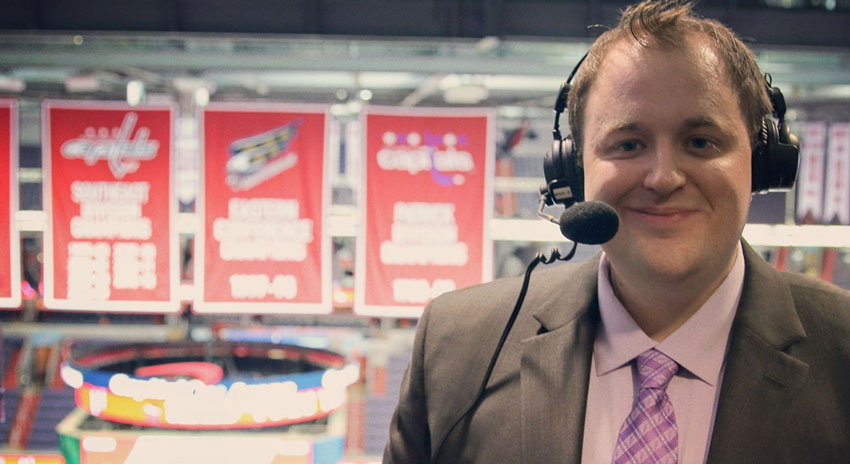
4How much of working in sportscasting is scripted versus off the cuff? Tell us about both aspects of working in media as you’ve built up quite the experience working in it.
Play-by-play is pretty much all off the cuff.
You might have go-to phrases for different scenarios, or things you like to say, but honestly, you just call the game as you see it by painting the best picture you can for the listener. I am always working to expand my vocabulary and adding new things to the broadcast, but it’s rarely scripted. Some guys have catchphrases, but that’s never really been my style.
For the last few years, when we win a big game or score an overtime winner, I’ve been saying “How sweet is that?” It just came out of my mouth after an OT win in the 2017 playoffs, then again the next night.
A few people told me they liked it, so I’ve stuck with it since Hershey is the Sweetest Place on Earth after all.
However, it’s something that more works for Hershey, and I’m not married to building any sort of brand around that phrase. I’m always hoping the next thing that comes out of my mouth is even better stated than the last thing I said.
In non-play-by-play scenarios, scripting work can be helpful and is typical for on-camera stand-ups in produced video pieces I do. It is nice to have that time to really think things over when you script them so they can be more powerful and just right.
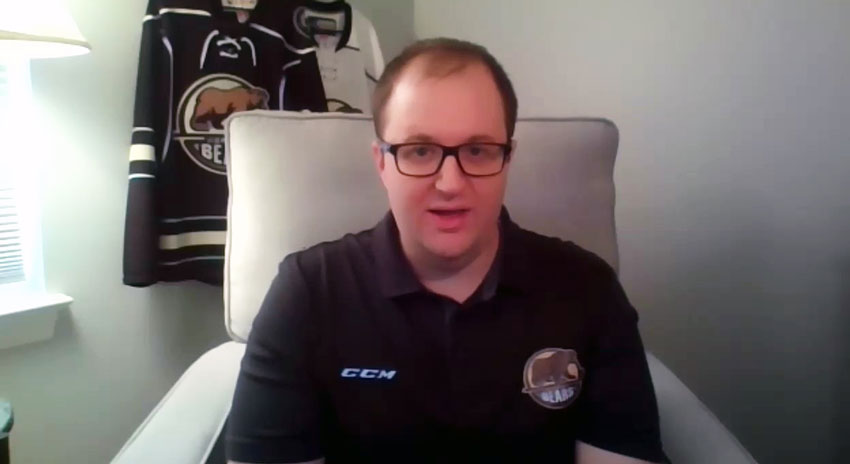
5Do you ever get nervous when going on-air? Or, can you recall if there was a point that you were nervous? If so, can you explain how you deal/dealt with it.
The only time I’ve ever been really nervous was before making my NHL debut with the Capitals in 2018.
John Walton, the Voice of the Capitals on their radio network, had me fill in for him on Feb. 20 vs. Tampa Bay. John was at the Olympics calling women’s hockey for NBC, and I knew of my assignment months in advance.
I had forever to prep and get ready, and I felt I had a great debut.
However, in the first 5 minutes of the game, I had butterflies for sure.
After the first TV timeout, I took a breath, looked around, and realized how cool this was and I settled in.
By the end of the night, even though the Capitals lost, I had a blast and got to call an Alex Ovechkin goal. Memories of that game and the taste of the NHL I got drive me to continue to get better in everything I do because I aspire to be up in the NHL full-time at some point in my career.
I do get nervous in the playoffs as well.
Not for the broadcast, but because as part of the organization, I want us to win so badly.
While you’re not a player, you get to know the coaches and team really well, and you want to see them succeed.
Plus, you’ve personally put hours and hours in at the rink and you want to be part of a champion. I was part of a championship team with Dubuque in the USHL in 2013, and it’s a lifelong bond.
6You have become quite a diverse sportscaster covering different levels of hockey, baseball and football! How did you become so dynamic and versatile? Do you have a favourite sport to cover?
It’s all hockey for me.
I did baseball and other sports while in college, but it’s hockey for me as a career and nothing even comes close otherwise.
Baseball is a sport I love and I’m a huge Kansas City Royals fan.
However, while I enjoyed my summers calling ball games in the Northwoods League back in the day, I’d rather be a fan of the game and sit in the crowd enjoying some nachos and a beverage.
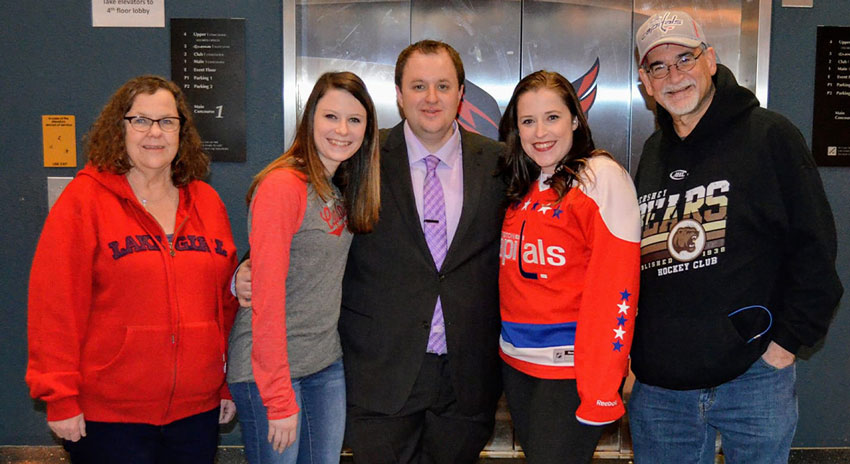
7For those who want to work in broadcasting one day, what is one thing you would suggest an aspiring broadcaster do to help build their brand and make themselves a credible hire?
Be kind and humble.
If you are not, it will catch up to you, fast.
Be prepared to work your way up the ladder. No job opportunity in this industry is too small to start. You’re not going to get paid six figures and there will be a lot of other work attached to the job besides just broadcasting, but to me, there is no job more fun.
Regarding calling games, you need to get as many reps as you can.
The more you call games getting started in this industry, the better your broadcasts will get. I go back and listen to clips in previous stops that I thought were fantastic demos, and I can’t believe how much I’ve improved since then.
As a broadcaster, prep work is essential as I mentioned earlier.
You can be a huge sports fan and someone who is very well-spoken, but that doesn’t make you a good broadcaster.
You have to come to the rink prepared with information about both teams, the storylines of the game, and have your finger on the pulse of not only the league but the hockey world.
Lastly, network!
Who you know and have made a great impression on is huge.
Reach out to those who you idolize in the industry, as well as those who are at the lower levels of the sports world that we're in the same shoes as you just looking to get their start a few years ago. I always love hearing from high school and college students looking for advice.
[get_current_post_author_pic_and_name]
As Manager of Media Relations & Broadcasting, Zack Fisch is essentially the "Voice of the Hershey Bears." Growing up, Zack always loved hockey and eventually found his passion in the world of sportscasting. After various jobs calling hockey and baseball, Zack was picked up by the Hershey Bears. As Zack expressed to me, a lot of preparation goes into his role -- sometimes, the preparation work does not make the cut on-air! Regardless, preparing for game night is a must. Most of the time, Zack's calling is off the cuff. You never really know what you're going to get but, it is bound to be a spectacular play-by-play thanks to Zack. His passion for broadcasting has presented Zack with incredible opportunities to do what he loves. How sweet is that?



